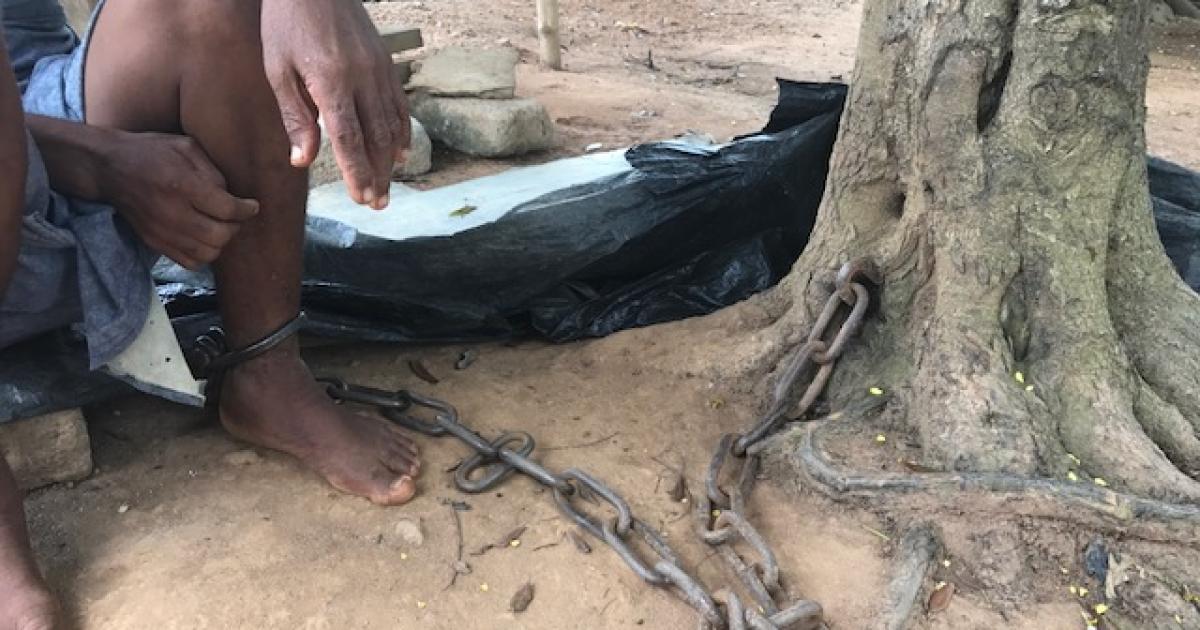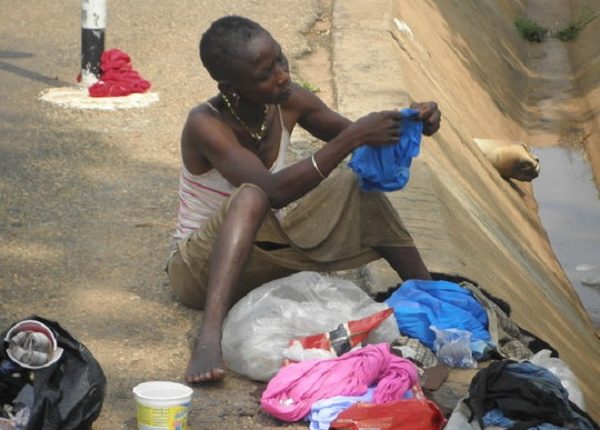Superstition often blamed for acute mental health diseases
Mental illness: Invisible but devastating
When American film actor Robin Williams, who suffered from depression, committed suicide four years ago, Kenyan humour writer Ted Malanda feigned incredulity.
“I can’t wrap my mind around the fact that depression is an illness…In fact, it is such a non-issue that African languages never bothered to create a word for it,” he wrote in his newspaper, The Standard, under the headline “How Depression Has Never Been an African Disease.”
Mr Malanda’s scornful quip captures the general African attitude, held as much by officials as by ordinary people, towards an epidemic of mental illness on the continent.
In Mr Malanda’s own country, which is one of the more stable in Africa, health experts have estimated that a fourth of the Kenyan population of 44 million suffer from a range of mental diseases, including schizophrenia and other psychotic disorders, bipolar disorder, depression and severe anxiety.
Kenya has only about 80 psychiatrists and 30 clinical psychologists, fewer than its 500 psychiatric nurses, of which only 250 work in mental health.
According to the World Health Organization (WHO), yet the country spends only about 0.05 per cent of its health budget on mental health.
About 70 per cent of mental health facilities in the country are located in the capital, Nairobi.
The mental health sector is only marginally better in more prosperous South Africa, which boasts 22 psychiatric hospitals and 36 psychiatric wards in general hospitals.
Inequality, however, skews these facilities in favour of only about 14 per cent of the population of 53 million, of which one-third are afflicted with mental diseases, according to experts.
About 75 per cent of mentally ill South Africans have no access to psychiatric or therapeutic care, experts say.
The National Health Insurance programme, which could boost access to mental health care, will not be fully implemented until 2025, perhaps later.
10 per cent
of mentally ill Nigerians have access to a psychiatrist or health worker.
Oil-rich Nigeria offers a more dismal picture. Both South Africa and Kenya have more psychiatrists per capita, as well as more psychiatric beds per capita.
The WHO estimates that fewer than 10 per cent of mentally ill Nigerians have access to a psychiatrist or health worker because there are only 130 psychiatrists in the country of 174 million people.
WHO estimates that the number of mentally ill Nigerians ranges from 40 million to 60 million. Disorders like depression, anxiety and schizophrenia are common in Nigeria, as in other countries in Africa.
In 2012, Ghana took a significant step forward in addressing the nation’s mental health when it passed Act 846, also known as the Mental Health Act, becoming one of the few countries in Africa to set out a mental illness policy.
Early that year, a report by Human Rights Watch (HRW), a non-governmental organisation, estimated that 2.8 million Ghanaians (out of a population of 25.9 million) had a mental illness.
Ghana has three psychiatric hospitals and about 20 psychiatrists currently. The HRW report cited the then-director of Accra Psychiatric Hospital, Dr Akwasi Osei, as saying that drug-related psychosis affected 8–10 per cent of all mental patients, while 20–30 per cent of patients were diagnosed with schizophrenia, 20 per cent with bipolar disorder, and 15–20 per cent with major depression. Sadly, 97 out of 100 mental patients who need health care have no access to these services.
Some politically stable countries that have enjoyed economic growth in the past decade also report high incidences of mental health disease, often linked to narcotic use.
In Kenya, Nigeria and South Africa triggers of mental illness such as unemployment and violent crime are at critically high levels.
The mental health picture is far worse in poorer countries, especially those that have recently experienced civil wars and conflicts, including Liberia and Sierra Leone.
Sierra Leone was a mental health pioneer in Africa. The British established the Kissy Mental Home (now Kissy National Referral Psychiatric Hospital) more than 100 years ago, describing it in an inscription as the “Royal Hospital and Asylum for Africans Rescued from Slavery by British Valour and Philanthropy”.
A place of confinement for traumatised freed slaves repatriated by British abolitionists, it was sub-Saharan Africa’s first, and for many decades only, Western-style mental hospital.
It remains Sierra Leone’s only psychiatric hospital. There were a total of 104 patients at the hospital in 2015, of which 75 were men. Most of them were 40 years old or below. Patients live in deplorable conditions, and several of them wear chains.

A 2016 report by Sierra Leone’s auditor general states that the hospital does not have a trained psychiatrist except for Dr Edward Nahim, who is on contract since he retired years ago, and three psychiatric nurses.
There is no clinical psychologist, no social worker, no occupational therapist, and no medical officer. The hospital is in a near-derelict state, and parts of it are in total disrepair.



